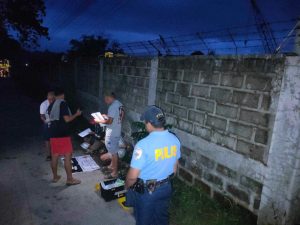Health officers are still going door-to-door, particularly in far-flung barangays, to detect the possible presence of the poliovirus in waterways, creeks, and rivers.
City Health Office head, Dr. Josephine Villafuerte, told reporters on Monday that they could not discount the presence of poliovirus in Davao’s bodies of water.
Water samples taken from Davao River near the Bolton Bridge by the Research Institute for Tropical Medicine (RITM) on Aug. 22, 2019 detected the virus. The result of the test was released on Sept. 9 last year.
Officials believed that the virus ended up in the river through the sewerage system.
Villafuerte said the recent samples from the Davao River no longer contain the poliovirus. But it does not mean that all the communities are safe.
“The last time they did the test last December, it (virus) was still there,” she said, adding that it’s still present in “other barangays.”
“Most probably these are the houses without a toilet,” she added.
That’s the reason why city workers are going to each house to determine if it has a dedicated septic tank. Some houses, she said, have toilets but do not have a proper septic tank, which would have prevented fecal waste from ending up in rivers or oceans.
“So, they need a septic tank. That is what we want for them,” she added.
The CHO has intensified surveillance of communities with possible polio cases to prevent an outbreak.
Villafuerte, however, said there is no recorded human case here in Davao City, “just environmental (case).”
Currently, the City Health Office (CHO) is now on its fourth round for the anti-polio campaign which started on Monday, Feb.17 scheduled until March 1, 2020.
The third round was previously conducted last Jan.20 to Feb.2, 2020. The fifth round is expected to be done from March 23 to April 5, 2020.
Health Officer Villafuerte said the approach is similar to the CHO’s previous mass vaccination campaigns. The strategies include house-to-house visits, a centralized drop-in center for oral vaccine administration, checkpoints, and shopping mall roadshows.
The public is advised “to always wash their hands, ensure that they have own bathrooms, take the vaccine and maintain proper hygiene.”




